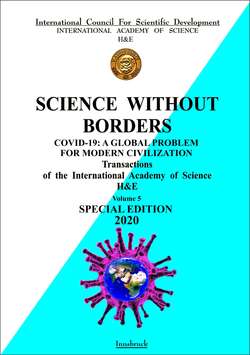Читать книгу COVID-19: A global problem for modern civilization. - Prof. Dr. Karl Hecht - Страница 16
На сайте Литреса книга снята с продажи.
3.1. Introduction
ОглавлениеThe role of minerals, trace elements and their compositions in the functioning of various physiological systems of the body is often underestimated. For example, if you think that you can compensate for the lack of calcium in the body by replacing calcium, you are mistaken because completely different processes occur in the human body due to the biological transmutation of minerals /20/. This will be commented below.
In the same vein, obesity is caused not by fatty foods, but by an excess of carbohydrates /21;22/.
Minerals are integrated into all life processes that are contained in plants, animals and people. On the one hand, they form the main substance of the structure, that is, the skeleton of humans and animals, and on the other hand, they participate in every process of regulation in the body. There is not a single biochemical or biophysical process in the body in which minerals are not involved. They practically form an inorganic substrate of life and are its regulators.
Minerals are present in the human body in both dissolved and solid state and perform many functions, for example, regulation of the extracellular matrix, as part of the acid-base balance, osmolarity and volume of body fluids. They participate in the creation of liquid and solid substances, as well as connective tissues and are part of many functions, for example, in the hormonal system, lymphatic system, enzyme system and blood system. They also support the electrical activity of cells, extracellular matrix and tissues and are necessary for energy metabolism.
